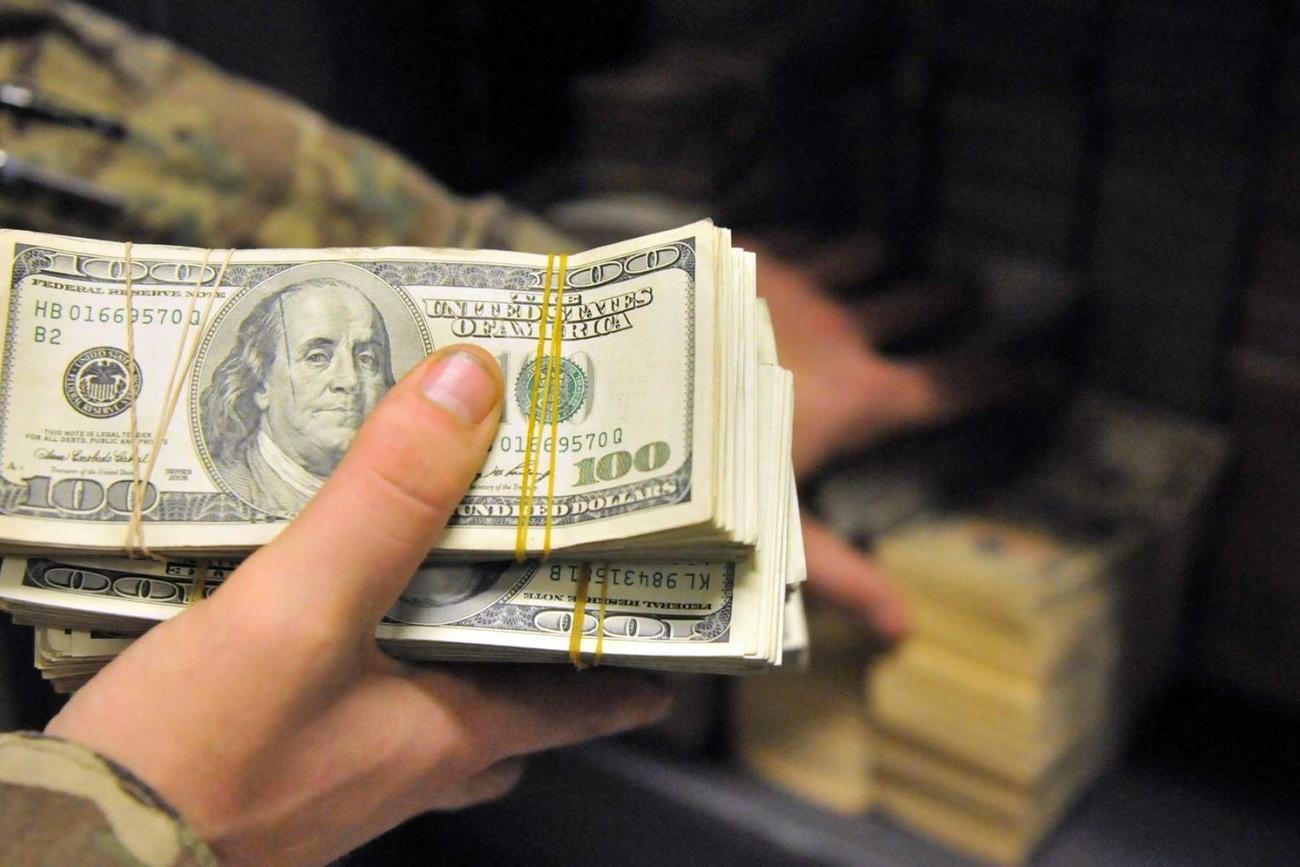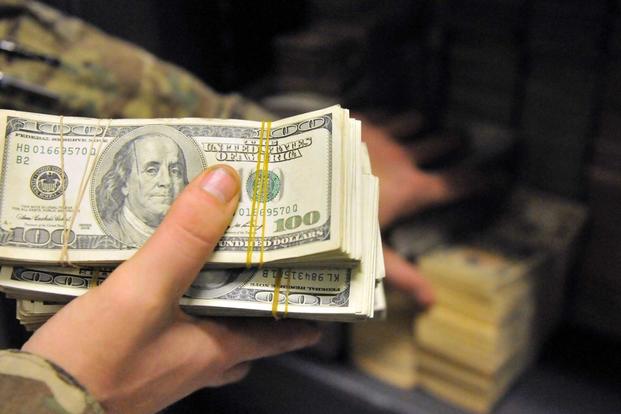

Bonuses service members could get to help cope with inflation would be nearly tripled under a proposal from a progessive House Democrat that would pay for the increase by cutting missile funding.
Under the version of the sweeping annual defense policy bill known as the National Defense Authorization Act, or NDAA, being considered by the House, service members making less than $45,000 annually would get a 2.4% bonus in 2023 to help offset strains from inflation.
An amendment proposed by Rep. Jamaal Bowman, D-N.Y., would increase those bonuses to 6.6%, according to a copy of the text obtained by Military.com. An earlier version of the amendment available on the House Rules Committee website did not specify a new rate for the bonuses.
Read Next: The Power of Navy Leaders — Especially Chiefs — to Make or Break Sailors
Bowman’s amendment would pay for the increased bonuses by cutting $1.4 billion in funding for the Army to buy missiles and redirecting that money to personnel accounts.
“With this year’s NDAA, we need to put the needs of our lowest-paid service members and DOD civilian employees first,” Bowman said in an emailed statement to Military.com. “The Pentagon’s weapons procurement is a major source of profits for weapons contractors that makes no impact on the reality that many of our young military families are struggling to put enough food on the table.”
Separately, Republican Rep. Ted Budd, N.C., who is running for Senate, has filed an amendment to increase the inflation bonuses to 4%.
“While the current pay raise for our troops in the NDAA is substantial, it does not cover the increased prices at the grocery store or the pump,” Budd said in an emailed statement to Military.com. “My amendment ensures that our brave servicemembers do not have to bear the brunt of this historic inflation.”
It is unclear whether either amendment will be given a vote when the NDAA comes to the House floor next week. Both Bowman’s office and Budd’s office told Military.com they had not heard yet whether their amendments would get a vote.
As of Friday morning, at least 1,192 amendments had been filed for the NDAA, and typically only a small fraction of the total number of amendments filed are given votes. The House Rules Committee is scheduled to meet Tuesday to decide which ones will get votes on the House floor.
Service members are on track to get a 4.6% raise in basic pay for 2023 regardless of any congressional action, which would be the highest military pay raise in two decades.
But inflation is currently hovering around 8.6%, according to the most recent update of the Consumer Price Index in June.
Lawmakers in both parties have expressed concern that troops, like the rest of the American public, are having trouble affording groceries, gas and other goods because of spiking prices.
The 2.4% inflation bonuses were approved by the House Armed Services Committee as part of a broader amendment that added $37 billion to the NDAA’s overall price tag, bringing the bill’s total cost to roughly $840 billion.
In addition to the inflation bonuses, the amendment approved by the committee included about $6 billion for inflation costs related to military construction and fuel, as well as billions for more weapons.
Progressives, who have unsuccessfully fought for years to slash the defense budget, lambasted the Democratic-led committee for going above the Biden administration’s request for what already would have been record high defense funding. Fourteen centrist Democrats on the committee sided with Republicans to approve the amendment in a 42-17 vote.
Progressives have filed several amendments to undo the committee action or go further, including one to cut the $37 billion added by the committee and another to cut $100 billion from the defense budget.
The missile funding cuts in Bowman’s amendment specifically target accounts that were increased by the Armed Services Committee amendment, bringing that funding back to the level the Biden administration requested.
“Instead of allotting an extra $1.4 billion for missiles, we can choose to give that to the lowest paid service members at a time when inflation is high and the cost of living continues to go up due to unchecked corporate profiteering,” Bowman said.
House Armed Services Committee Chairman Adam Smith, D-Wash., opposed the amendment that was approved by his committee. Still, when the committee debated it last month, he commended “a lot of things in here that address inflation for our service members.”
A spokesperson for Smith, who is responsible for shepherding the NDAA through the House, declined to comment on his stance on either the Bowman amendment or the Budd amendment.
— Rebecca Kheel can be reached at [email protected]. Follow her on Twitter @reporterkheel.
Related: Inflation Bonuses for Troops Make it into Sweeping Defense Bill
© Copyright 2022 Military.com. All rights reserved. This material may not be published, broadcast, rewritten or redistributed.
